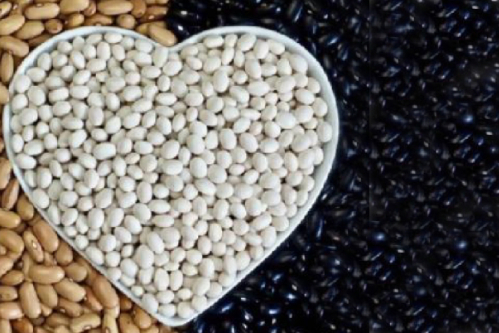Warwick Crop Centre and Agrii
A bid to make British beans: How Warwick Crop Centre and Agrii are pioneering an everyday staple

Agrii and experts at Warwick are working together to develop a haricot bean variety that can be grown in the UK at a commercial scale.
Britain loves beans.
According to a commonly cited figure, the UK gets through more than two million cans of baked beans every day.
Their rise to cupboard staple has been meteoric since 1901, when they were first sold on these shores by Fortnum and Mason as a luxury item.
But this quintessentially British delicacy is not grown at home.
Every single can of baked beans manufactured here contains haricot or ‘navy’ beans imported from overseas.
In fact, the leading brand alone ships 50,000 tonnes of them from North America to the UK each year.
Obviously, this is far from ideal for carbon footprints, especially with demand likely to rise as more people turn to plant-based diets.
So what if, instead of bringing it across the Atlantic at huge financial and environmental cost, we could grow the humble ingredient needed to make our delicious baked beans – and used in all manner of other dishes – locally?
That’s exactly what a partnership between Warwick and agronomy services provider Agrii is trying to achieve.
To bean, or not to bean?
The University was actually the obvious choice for Agrii.
It’s home to Warwick Crop Centre, an internationally recognised centre for translational research in sustainable agriculture and food security where experts keep their fingers on the pulse of all things pulses.
And together with his colleagues, Professor Eric Holub from the School of Life Sciences has worked tirelessly to establish Mesoamerican food crops for UK production.
“Self-sufficiency in food production is important for reducing human impact on global climate,” Eric said.
“British-grown beans can help us shift our diets to a healthier future, adding to other domestic ingredients to supply the growing trend of flexitarian diets with new markets like Brit-Mediterranean and ‘Brex-Mexican’ style food.”
Professor Holub has even created two varieties of bean with locally inspired monikers: a large blond bean named Godiva and a traditional white navy bean called Capulet.
The latter is quicker to cook than most beans, needing just an hour to soak and 15 minutes to boil – fitting, given it is named after a play in which a great deal of Shakespearean drama occurs in only three or four days.
As it happens, Warwick is home to some pretty keen beans all round; Eric co-supervised a research project by PhD student Andrew Tock that sought to genetically map the navy bean using DNA sequencing technology and develop it to thrive in Britain.
This track record, combined with the ability of Warwick Innovations to commercialise work produced from world-leading research at the University, led Agrii to sign a contract to promote the commercial production of UK haricot beans developed by its scientists.
Like magic (but without the giant)
Under the agreement, Agrii is carrying out pre-commercial field trials and detailed research to work towards a proof-of-concept.
The hope is this will develop a growing model that fits with progressive British broad-acre farming systems, making the idea of homegrown haricot beans a tantalising possibility.
It’s an example of how Warwick Crop Centre works with industry; other projects have involved private companies such as Hazera Seeds, AHDB Horticulture, Elsoms Seeds, as well as bodies such as the Biotechnology and Biological Sciences Research Council.
“Haricot bean varieties bred for UK conditions that can be grown on a commercial scale offer a broad range of benefits for UK farming,” explained Colin Lloyd, Head of Agronomy at Agrii.
“Alongside faba beans and peas, they could provide an alternative short-season break crop for cereal rotations, improving soil and contributing to responsible land stewardship, as well as adding to the viability of farming businesses.”
If the work of Warwick and Agrii proves successful, the rewards may be incredibly lucrative.
With import, logistics and energy costs continuing to rise, a native crop could be a gamechanger for manufacturers.
For now, Agrii is benefiting from the extensive expertise on offer from Warwick through the partnership, as researchers work towards a common goal.
But longer term, we may eventually be cooking with British-grown haricot beans – or even pouring them out of a can and onto our toast. “If there is demand and a market for a product, then British farmers will grow it,” Professor Holub said.
